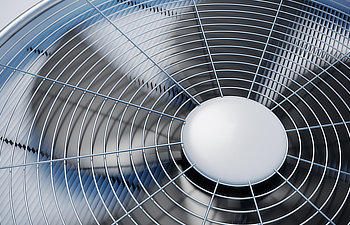
As winter settles in, many Atlanta businesses that rely on commercial chillers must adjust their operations to ensure efficiency and reliability. Commercial chillers are critical components in various industries, including food and beverage, pharmaceuticals and manufacturing, as they help maintain optimal temperatures for processes and products.
Aeras Building Solutions explores the importance of winter maintenance for chillers, common challenges faced during the colder months and tips for ensuring optimal performance.
Understanding Commercial Chillers
Commercial chillers are designed to remove heat from a liquid via vapor-compression or absorption refrigeration cycles. This chilled liquid is then circulated through equipment, processes or space to achieve the desired cooling effect. Typically, chillers can be air-cooled or water-cooled, each type suited to specific applications and environments.
As temperatures drop, the performance of chiller systems can be affected in several ways:
- Icing and Freezing: In colder weather, ice formation can occur in the chiller’s components, particularly in the evaporator coils, leading to reduced efficiency and potential damage.
- Condensation Issues: Lower ambient temperatures can cause condensation around components, which may lead to corrosion or other issues if not managed properly.
- Fluid Viscosity: The cooling fluids used in chillers may become more viscous in lower temperatures, impacting flow rates and overall system performance.
- Increased Energy Costs: Inefficient chiller operation during winter can lead to higher energy consumption, which can affect the bottom line.
Common Challenges in Winter
While some processes may require less cooling in winter, others could produce an increased workload if not well-regulated. This can lead to:
- Short Cycling: Rapid temperature fluctuations can cause the chiller to cycle on and off frequently, which can be detrimental to its lifespan and efficiency.
- Frost Buildup: In humid conditions, frost can accumulate on the evaporator coils, reducing heat exchange efficiency and increasing energy consumption.
Winter Maintenance Tips
To help ensure your commercial chiller operates efficiently throughout winter, Aeras professional HVAC and chiller maintenance technicians recommend the following maintenance best practices:
- Regular Inspections: Schedule routine inspections before winter sets in. Check for any signs of wear or damage, especially around insulation and electrical components.
- Check Refrigerant Levels: Verify that refrigerant levels are consistent with manufacturer specifications. Leaks should be fixed promptly to prevent inefficient operation.
- Winterize Outdoor Components: For outdoor chillers, ensure that all external pipes, fittings and insulation are properly secured to prevent freezing.
- Maintain Proper Airflow: Ensure that nothing obstructs airflow around the chiller units. Snow and ice should be cleared regularly from the area surrounding outdoor chillers.
- Monitor Temperatures: Monitor both the ambient temperature and the temperatures maintained by the chiller. If you notice significant deviations, investigate and address the cause.
- Invest in Modern Controls: Consider upgrading to smart control systems that can optimize operation based on real-time environmental conditions, helping to maintain efficiency without sacrificing performance.
While winter presents unique challenges for commercial chillers, proactive maintenance and careful management can mitigate many potential issues.
Atlanta, GA, HVAC Chillers Contractor
Aeras Building Solutions’ Atlanta HVAC Chillers specialists can help you implement recommended practices and stay vigilant to ensure your chillers perform reliably and efficiently throughout the winter season. Contact us today for chiller maintenance, service or installation.
Posted on behalf of
